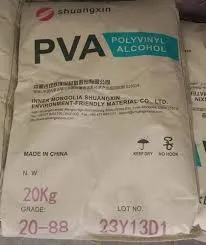The Importance of Construction Adhesives in Modern Building Projects
Construction adhesives play a pivotal role in the realm of construction and renovation. With advancements in technology and materials, these adhesives have become essential for ensuring structural integrity, enhancing aesthetic appeal, and increasing the efficiency of building processes.
What Are Construction Adhesives?
Construction adhesives are specialized bonding agents designed to adhere materials such as wood, metal, concrete, ceramics, and plastics. Unlike traditional adhesives, construction adhesives are formulated to provide superior strength, flexibility, and heat and moisture resistance, making them suitable for various applications in residential, commercial, and industrial settings.
Types of Construction Adhesives
There are several types of construction adhesives, each tailored to specific applications
1. Polyurethane Adhesives Known for their strong bonding capabilities and flexibility, these adhesives are ideal for applications requiring resistance to moisture and temperature fluctuations. They are commonly used in areas exposed to heavy loads or harsh environments.
2. Epoxy Adhesives Composed of resin and hardener, epoxies create highly durable bonds that can withstand extreme conditions. They are often employed in structural bonding, repair, and maintenance tasks, making them suitable for both indoor and outdoor applications.
3. Acrylic Adhesives These fast-curing adhesives offer excellent adhesion to a wide variety of substrates. Their versatility makes them popular for projects ranging from interior decorating to heavy-duty structural applications.
4. Silicone Adhesives Recognized for their flexibility and water resistance, silicone adhesives are frequently used in applications where movement or expansion is expected, such as in window installations and sealing joints.
construction adhesive

Benefits of Using Construction Adhesives
The use of construction adhesives presents numerous advantages
- Strength Modern construction adhesives can achieve high tensile and shear strength, providing support comparable to mechanical fasteners like nails and screws. This strengthens the overall structure and increases longevity.
- Flexibility Many adhesives can accommodate movement and vibrations, reducing the risk of cracks and failures that might occur with rigid fasteners.
- Ease of Use Construction adhesives are typically easy to apply, allowing for straightforward installation without the need for extensive tools or machinery. This feature significantly reduces labor costs and time.
- Versatility With the ability to bond various materials, construction adhesives are ideal for multifaceted projects where different substrates need to be joined.
Environmental Considerations
As sustainability becomes a critical focus in the construction industry, many manufacturers are developing eco-friendly adhesives. These formulations often use renewable resources and contain lower levels of volatile organic compounds (VOCs), making them safer for both the environment and human health.
Conclusion
In conclusion, construction adhesives are integral to modern building practices, offering strength, flexibility, and ease of application. As technology continues to advance, these adhesives will likely evolve, providing even more robust solutions for construction needs. Whether renovating a home or constructing a high-rise building, understanding the role and benefits of construction adhesives can lead to healthier and more sustainable structures. Ultimately, the choice of adhesive can greatly influence the durability and success of a project, making it an essential consideration for builders and contractors alike.
-
Rdp Powder: Key Considerations for Wholesalers in the Building Materials IndustryNewsJul.08,2025
-
Key Considerations for Wholesalers: Navigating the World of Hpmc - Based ProductsNewsJul.08,2025
-
Hpmc Detergent: Key Considerations for WholesalersNewsJul.08,2025
-
Key Considerations for Wholesalers: China Hpmc For Tile Adhesive, Coating Additives, Concrete Additives, and MoreNewsJul.08,2025
-
Crucial Considerations for Wholesalers: Navigating the World of Construction MaterialsNewsJul.08,2025
-
Key Considerations for Wholesalers Sourcing Additive For Cement, Additive For Concrete, Additive For Putty from Additive Manufacturer Shijiazhuang Gaocheng District Yongfeng Cellulose Co., Ltd.NewsJul.08,2025




